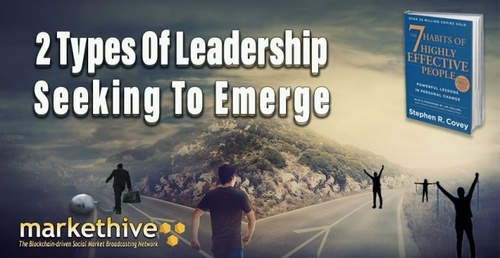
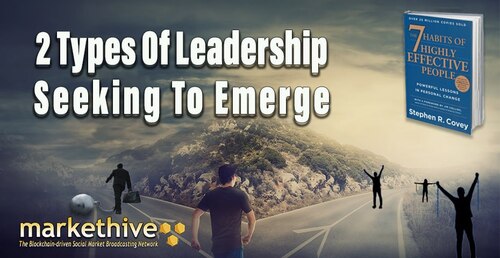
Two Types of Leadership
There are two types of leadership looking to emerge right now. One leads to total enslavement. The other has the potential to set you free. Just listen to this extracted clip up to the 4min mark, from a speech by Barack Obama several years ago, which captures the summary of the conflict.
It lays out two forms of power, one whose central theme is the empowerment of the people, as underpinned in the Constitution of the USA. The other is a top down centralized form of world power, based on the concept that mankind needs to be controlled by man’s version of a sovereign power.
The Old Guard
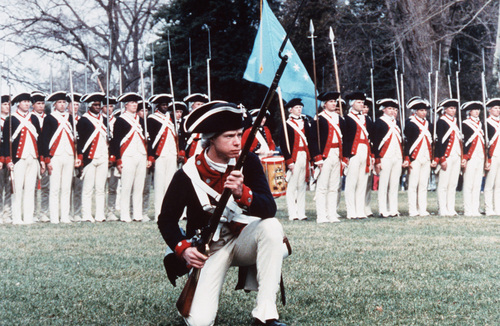
Image Source: The Old Guard
If the Rothschilds, Rockefellers and Vatican have their way in their control of giant corporations, we will be moving to a new world order, which means everything is centralized and controlled by the few. This includes the governments whom I exposed in a previous article as being corporations, not service entities.
See if you can make the connection between their stated relationship with ‘other financial ‘ institutions, and how this connects to the current asset stripping that is going on with the land and the farmers, as one example. Their control will be accompanied by a disdain and dislike for ‘we the people’ and will result in more rules that stack the cards in their favor so to speak. It has already been happening.
For those who can read the signs of the times, and go beyond the conflicts of mainstream media reporting, it is becoming more evident that this is what is in play. If you still think we are reverting to getting our life back after the latest global events read this from the Vatican News.
Troubled Waters
The traditional leaders of our times have largely led us into troubled waters, and many are now awakening to the realization that this is far from accidental. Rather it was orchestrated to enable the few to benefit while the majority plunge deeper into modern day slavery in all aspects of their lives.
If that still feels like a dramatic statement to you, simply take your research beyond the mainstream media and all governmental authorities who have conflicts of interest with their puppet masters and the general public, and you might start to think differently. If you conduct more independent research, a pattern will emerge that cannot continuously be put down to error or incompetence, and clarity will emerge.
Self-Serving Leadership is Not Leadership
It seems that money continues to do the talking, with politicians and many big corporate CEOs selling their soul to line their pockets, serving money and profits, while behaving duplicitously toward the public, and claiming ignorance on the repeated errors that play out in governance.
This is their model as David Icke eloquently put it. To create money they find a way of robbing the people. They create a problem, they watch the reaction, and then come up with a solution for the problem they created, which, by the way, they blame on the population. Usually that solution requires you to part with money in some shape or form. The energy crisis is a great example of this in action.
Self Serving Leadership Characteristics Exposed
My submission is that what we are witnessing from a leadership perspective, is a style of leadership that is based on a scarcity mentality, and a disregard for mankind as being worthy of equal consideration. Current politics is based on a hierarchical structure with ‘divide and rule’ being its modus operandi.
Mental Characteristics
At a psychological level scarcity mentality is playing out. This is based on the belief that there is not enough to go around, which of necessity leads to a survival strategy, marked by competition.
An example of this is Bill Gates' Ted Talk, where he talks about the world being overpopulated and how vaccines within a CO2 formula can help to reduce the world population. It’s no surprise that the Climate Agenda is now taking stage at this moment, and how everything that is happening is being connected in such a way as to help them impose the new world order.
If you think that the airport and train strikes are simply about wage protests, think again. We are in a different version of lockdown where freedom to travel is being curtailed, and not by virtue of ’vaccination’ status alone. In a previous article I shared a university piece recommending that by 2030 all UK airports should be shut, and that we should only be able to eat certain things.
The thinking behind this also points to a purely convergent thinking which focuses on narrowing down a problem toward a solution. In this case it is a biased form of convergent thinking, proposing a one-size fits all solution that gives huge benefits to the few who are pulling the strings.
The population does not really get to have a say. Ask yourself why Bill Gates talked freely about vaccines being part of a depopulation strategy, and why he is buying up huge amounts of land in the USA. The key strategy used by big corporations and certain politicians is through competitive thinking showing up in the monopoly of industries. Competition, when done fairly, can be healthy.
Monopoly on the other hand is a divide and rule strategy, where an attempt is made to effectively wipe out the opposition, so the few rule the roost. Ask yourself why Dr David Noakes and his business partner were extradited to France under the corrupt European Warrant, which allows someone to be thrown in jail without evidence.
Their so-called crime was that they were helping so many people to put cancer into remission through a naturally occurring protein called GC-MAF. They got hounded under the guise of regulatory investigation, and were then extradited to a French prison.
The last thing I gleaned was that they were not allowed daylight for more than about 20minutes, and their health was suffering greatly – unsurprisingly. They represented a significant threat and opposition to Big Pharma because they were getting huge and better results. They had to be removed.
The mental attitude is to manipulate and shape thinking through the advertising of fear and propaganda, based on their false narratives. The goal is to disempower the people so the few can asset strip with less and less resistance until the people are at zero.
It is a top down thinking and approach to governance, which dictates to people what they can think, say or do. In this scenario they are the puppet masters and we are the puppets. That has become evident in the censorship and de-platforming of several thought leaders on youtube, who challenged the status quo. It is plain to see that this type of thinking and leadership does not serve the people and the planet on which they live. This is the old guard of current leadership. It’s time for a changing of the guard.
The Cross Roads
The world is at a major crossroads right now, and the decision that each of us makes from here will determine the destiny of the planet. There are more of us than those seeking to impose their control. We pay for the government through our taxes. Therefore we are not powerless.
However it involves more than words or just voting for another politician. For example in the UK we now have a new leader of the conservative party. We did not get to vote, it was all done internally.
Ask yourself though, given the choice, who would you vote for who is truly all for serving the people? If they are, does the current structure of governance allow them to operate freely to do so? It’s not as simple as just getting rid of Boris Johnson.
I have not voted for a politician since the days of Jeremy Thorpe, the former Liberal party leader, not because I do not care, but because I believe that a different governance structure which truly supports humanity needs to exist. Over in the USA Donald Trump and company are urging people to get out and vote.
Again the same question arises, as above in the example of the UK. If the current underpinning flawed structures remain, it doesn't matter who you vote for. It’s not so much that we need a new governance and leadership that has never been thought up before. We do, however, need a leadership that is going to mirror the opposite of the old guard, and lift humanity to new levels of life and freedom.
Building the Bridge of A New Leadership
It starts with you and me, and it takes presence and courage! We need to decide what principles and values will shape our lives and world moving forward. Then we can plan to embody it in practice.
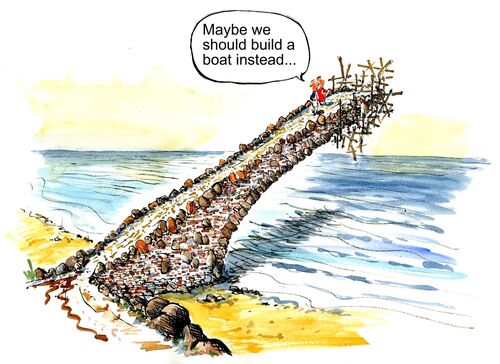
Source Image: Bridge Over Troubled Water
This creates a new infrastructure which is first imprinted from within, ready to morph into being in the external world. So far, more people are making their voice heard, as seen in the many global demonstrations taking place, and the world has witnessed what could happen as the people of Sri Lanka chased their government out of official residence, causing them to flee the country.
However as that article suggests this is only one layer of addressing the crisis. There is evidence of a new leadership emerging where small groups of people are building infrastructure in technology and land, to replace the old. They are effectively building a parallel society where peaceful means of living and support can exist.
Agorism comes from the ancient greek work equivalent 'agora', meaning an open place for assembly and market. Whether through agorism, or fairness and consideration for the welfare of all living things, projects are being established based on principles of living in an interdependent manner of sharing and caring.
Gandhi’s quote on ‘be the change you wish to see in the world’ gives a powerful insight into the sort of leadership that can change the world in a positive manner, while recognising all as leaders, not simply by virtue of status and title, but based on inner transformation, life experiences and the demonstration of wisdom attained throughout.
If everyone embraced and embodied that quote, the world would change overnight, because the collective energy of the will to change from the inside out would affect the collective consciousness, out of which something new and constructive would morph.
So ask yourself what sort of values and principles you wish to embody as part of a different world. What are you willing to be and do to become that leader in your life? After that I would like to recommend a book I have been reading over the summer which can help you embed your answers within a framework that builds from root principles.
That is Steven Covey’s well known book from the 80’s, The 7 Principles of Highly Effective People. While reading it, I recall thinking that this was more than just about effectiveness. It was about leadership. He has written a book on this too. It is well worth revisiting this book as there is timeless wisdom in there which needs resurrecting, and would serve as a great practical guide to build on Gandhi’s exhortation.
Effectiveness and Empowering Leadership
Steven Covey proposed that effectiveness is built on certain habits which permeate all areas of our lives, and that when those habits have their roots in life principles, rather than personal growth tactics and techniques alone, it has a far reaching effect that is akin to empowering leadership. His 7th Principle of Sharpening The Saw integrates the first 6. Let’s look at what constitutes that saw and how to sharpen your saw.

Image Source: Sharpening The Saw
Empowered Leadership
Empowered Leadership is the ability to raise individuals up to express their potential in ways that go beyond self-service to that of service to humanity. It is a transcendent path and an interdependent path, which goes beyond the ego and its desires, to mastering the art of connection of ‘we’, not just “i’ and ‘you’. He divided his principles into two domains, private victory and public victory and posited that what you build in the internal private world affects what shows up in the external world.
Private Victory
His first three habits come under private victory:-
Be Proactive
The basic theme here is that you are the creator, and do not have to wait for circumstances to be right in order to create. Therefore you can develop proactiveness rather than being reactive to circumstance.
Ask yourself: ‘How proactive am I when it comes to my life principles?’ Do I wait for circumstances to be favorable or do I create resourcefulness?’
Begin with the End in Mind
You may be aware of the study in Australia where a group of people with terminal illness were asked about their regrets. Not one of them said they wished they had worked harder, because for most their jobs were a means to an end, rather than fulfilling of itself. All of the answers spoke to the quality of life, such as spending more time with loved ones, having the courage to go for their dreams, and so on.
Steven uses this to suggest a more accurate compass to designing our lives moving forward. He suggests a powerful visualization. However I will adjust it here to its core essence. Imagine if you can, that you do not have long to live.
Ask yourself “If today were my last day, what would I regret not being and doing?’
Use this as a guide to adjusting your life from today moving forward. To get his version of the visual he proposed, do read his book, and get a version of the book that is between 1989 and 2012 when he died because those versions will have his personal edits, not someone else's.
Put First things First
This section is all about scheduling priorities according to what is most important in our lives, not what is urgent yet not so important. Most people build around the urgent in reactive fashion.
Ask yourself: ‘ How well do I prioritize and attend to those things that are important to me?’
The remaining 4 habits come under Public Victory based on interdependent living:
Think Win-Win
This is about thinking in terms of cooperation to attain the highest good for all those involved. Win-win is not always possible and there are different variations to this scenario. Win-win types of scenarios fall under the banner of mastering the art of ‘we’.
Ask yourself: ‘ How well do I operate from the level of win-win in my relationships and work?’
Seek First to Understand Then to Be Understood
This is about the desire to understand the depth of a person and their world through listening and empathy, rather than to be preoccupied with what you want to say.
Ask yourself: ‘ What is the quality of my listening and empathy like?’
Synergize
This is about integration and bringing all the moving parts together in the private internal world to merge with the activities in the external world. It is about the being and doing aspects coming into alignment with each other.
Ask yourself: ‘How aligned and harmonized do I feel in my being and doing?
Sharpen The Saw
This is all about cultivation. This means taking the time out to reflect on the whole, and the moving parts where the seven habits are concerned. It is about asking the right questions, answering with honesty, and adjusting accordingly.
One of the interesting things Steven posed in his book is how it is possible to be efficient while doing the wrong things. Leadership he says is doing the right things, and management is about doing things well. So it is possible to be using your skills in the wrong place, for example. This provides an appropriate reference to reflect on the topic of new leadership.
Ask yourself: ‘Where would be the best application of my skills and talents right now, which would make my heart sing, while providing a significant contribution to humanity?’
This ties in with habit 2, Start with the End in Mind. Create your own personal constitution, using the seven habits as a structure for your thoughts and plans moving forward, so that your life becomes based on root principles, which can give way to a new form of governance in your life and beyond.
The great thing about this is that you don’t have to be perfect. Leadership is for all who are willing to correct error, incompetence and corruption, starting within, with a view to serving mankind. I like to look at current reality as a mirror and ask, for example, ‘where have I contributed to the error, incompetence and corruption I am observing?’
I then look at what values and principles I wish to bring forth in myself and beyond, so that my inner infrastructure can pave the way for new structures to form on the outside for the benefit of all. Steven Covey provides two recommended resources of people who were willing to bridge those gaps, from within their prison surroundings.
They are Viktor Frankl’s autobiography ‘Man’s Search for Meaning’, and Anwar Sadat’s autobiography, ‘In Search of Identity’. For a current inspirational example of someone standing in the gap between the old guard and new emerging leadership, take a look at the documentary The Seeds of Vandana Shiva, an activist in India who embodies fearlessness with the courage and integrity to serve humanity in a way which reflects their sacred identity.
With this type of leadership, everyone can become a light dispelling the darkness of the old destructive guard, through how they are being and what they are doing, while bringing about a new golden age, where all can shine and thrive.
Which of these two types of leadership emerges, is down to ‘we the people’, whether we choose by default and keep to the old guard, or get proactive as Steven Covey encourages, bringing in the new guard.
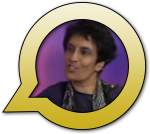
Tim Moseley
